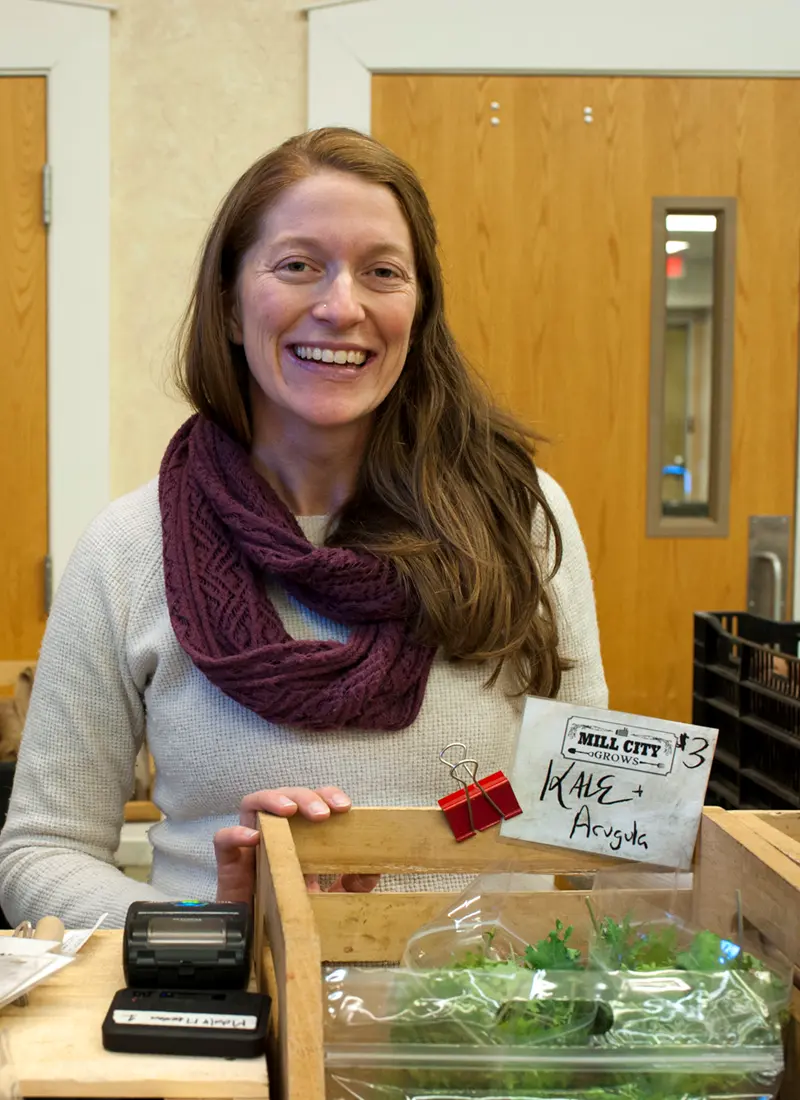Lydia Sisson, The Urban Farmer

When I was little, I caught [a garter snake] in the nest box with an egg that he’d swallowed. [My most vivid food-related memory is] driving with my dad to relocate the snake [when] it pops out of the pillowcase and gets loose in the car, and my dad pulls over and flings it out the window.
Lydia Sisson ’12 grew up in the rural South, where her family had a vegetable garden and kept chickens. She fell in love with farming as a student at Vassar College, where she got a work-study job with a nonprofit farm that rented college land, and then went to Brazil to study the Landless Workers Movement. “That really changed my perspective on what equity is about, and the incredible disparity in access to food and land and capacity for people to have self-sustaining lives,” she says.
After graduating, she moved to Lowell and worked on farming projects at the United Teen Equality Center, then apprenticed at several farms before starting her own CSA (Community-Supported Agriculture) farm in North Reading in 2008. But just one farm wasn’t enough. Everywhere she looked, Sisson saw signs of food disparity—and city land that was unproductive. So she signed up to earn a master’s degree in economic and social development of regions at UMass Lowell, where she made community connections through internships at local nonprofits and studied the city’s food system and needs. For her master’s thesis, Sisson—working with garden educator Francey Slater—developed a business plan for a sustainable nonprofit that increases access for city residents to fresh, healthy food.
Since its founding six years ago, Mill City Grows has developed six community gardens, 14 school gardens and three urban farms—including a new greenhouse and garden space behind the residence halls on East Campus. It also runs a mobile farmers market and gardener education programs. “We really do create lasting change in the community through transforming spaces into urban food production hubs,” Sisson says. “And I love that we are building these new green spaces in the city that change the entire landscape.”—KW

